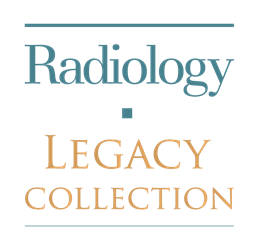While RSNA is flexible in our agreements and will work with you and/or your legal department to determine language and finalize terms of the agreement that will satisfy all of your needs, we believe it is important to share our mission based pricing models.
The first step in RSNA’s mission based pricing is to determine the mission type: academic, hospital, not-for-profit or corporate.
Academic model
For single on-site academic institutional access, an RSNA subscription should provide access needs. Please see the tier descriptions detailed above to determine your appropriate tier assignment.
If there are multiple institutions or additional user needs, RSNA requires the full institution name, address, research level, type of academic institution, Ringgold ID number (if available) and web address for each participating institution with a description of each user base and additional access rights requested. Also, please indicate if there is a single signatory party for the agreement or if each member institution must be a signatory. RSNA will use this information to determine the appropriate prices based on our subscription model. RSNA will use the number of sites included in the license to determine the level of "site discounts" a licensee will receive. The more sites you have, the greater your discount.
Any of the following institution descriptions will fall under the tier 5 rate and will require a licensed subscription:
- Academic consortia or research institute
- Research universities with multiple medical schools and/or medical centers or hospitals
- These types of institutions may be considered "one organization/academic community," but if there are multiple physical sites accessing, a licensed subscription is required
- Universities that share digital resources
Hospital model
For single on-site hospital access, an RSNA subscription should provide hospital access needs. Please see the tier descriptions detailed above to determine your appropriate tier assignment.
If there are multisite or multi-institution user needs, RSNA requires that you provide the full hospital name, address and bed count for each participating hospital. Also, please indicate if there is a single signatory party for the agreement or if each member hospital must be a signatory. RSNA will use this information to determine the appropriate prices based on our subscription model.
RSNA will use the number of sites included in the license to determine the level of "site discounts" a licensee will receive. The more sites you have, the greater your discount.
Not-for-profit model
RSNA will determine the scope of access. This is why RSNA generally asks for the number of sites looking to gain access and the total number of full-time employees (FTEs) — even though most may not access online journals — to determine the size of the organization. With a large percentage of international readership, we simply do not have the resources to research each institution to determine its size, so we use the total FTEs as our preliminary guideline. From here, the organization is assigned to an appropriate price range using this number.
Because RSNA recognizes that it is unfair to base pricing completely on the size of an organization, especially if most employees will not use content, we ask for the number of relevant FTEs (rFTEs). We then determine the ratio of rFTEs to FTEs. The smaller the number of rFTEs in comparison to all FTEs, the larger the discount — up to 85% off the price.
RSNA will use the number of sites included in the license to determine the level of "site discounts" a licensee will receive. Basically, the more sites you have, the greater your discount. RSNA offers certain clauses in contracts that provide different access and marketing rights (3.1.5 and 3.1.6). If these are removed, additional discounts are provided.
Corporate model
RSNA will analyze the mission of the organization to determine how closely it aligns with RSNA’s own mission and determine the scope of access. RSNA requires the number of full-time employees (FTEs) and the number of relevant full-time employees (rFTEs) to determine pricing. With a large percentage of international readership, we simply do not have the resources to research each institution to determine its size, so we use the total FTEs as our preliminary guideline. From here, the organization is assigned to an appropriate price.
Because RSNA recognizes it is unfair to base pricing completely on the size of an organization, especially if most employees will not use content, we ask for the number of rFTEs. We then determine the ratio of rFTEs to FTEs. The smaller the number of rFTEs in comparison to all FTEs, the larger the discount — up to 85% off the price.
RSNA will use the number of sites included in the license to determine the level of "site discounts" a user will receive. As an incentive to get all sites to license in a single contract, the more sites you have, the greater the discount.

